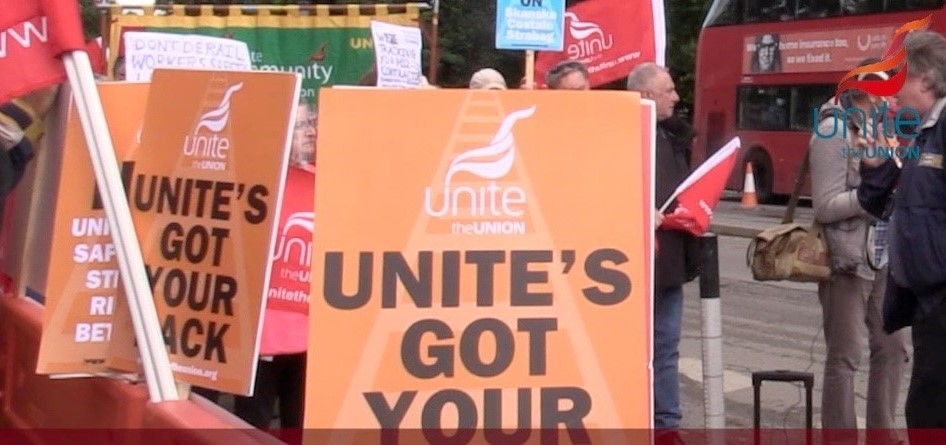‘You wouldn’t believe the pain’
In part 4 of our Workers’ Memorial Day series, we speak to Unite’s Gary Fairclough, who tells of a harrowing workplace accident that took him years to recover.
When Gary Fairclough fell through a scaffolding board that had been installed dangerously he did what anyone would do and put his arms out.
As he dropped into the air below Gary’s arms and shoulders jammed into the gap, taking the force of the impact and ripping out both of his pectoral tendons. His injuries were so severe that it would take three years for him to recover.
“When I went to see the specialist he said he’d never seen injuries like it. He used me as a medical study before I started surgery because the orthopaedic surgeons had never dealt with anything like that before,” said Gary, who is now a Unite regional officer for Lancashire, Greater Manchester and Cumbria.
The irony isn’t lost on Gary that as well as working as a bricklayer at the building site where he sustained his injuries that day in 2007, he was also the site’s union safety officer. In the run up to International Workers’ Memorial Day, the 55-year-old is sharing his story to highlight the dangers construction workers face everyday.
Each year thousands of construction workers like Gary are seriously injured at work. In 2015/16 there were 5,245 construction related injuries and 43 workers killed.
For Gary the initial shock and pain of the accident was just the beginning of an arduous journey back to health.
He explained, “They managed to reattach the tendon in my left shoulder in 2008 but when they opened me up to reattach the right one six months later, they realised the tear was too big.”
Gary was informed that the only way the doctors could repair the tendon was through an experimental surgery that utilised an achilles tendon from a organ donor.
Fortunately the surgery was a success, but Gary still had two more operations to go.
He said, “After that I had keyhole surgery on my shoulder joint and following that I had surgery on my ankle. But I got MRSA and nearly died in Preston hospital.
“I was too poorly to have a general anaesthetic, so they had to clean the joint out while I was still awake. That was a traumatic experience – you wouldn’t believe the pain.”
Finally, after more than 100 physiotherapy sessions, in 2010 Gary’s treatment was over.
“The irony is I never broke a bone, it was just tendon damage. But even though I’ve made a full recovery and I could never have returned to the construction industry,” said Gary.
Union support
Instead Gary decided to use the knowledge he’d gained while he was injured to help other people by working for the union.
“If I had not been in a union and I hadn’t had that support, I would have gone under after the accident. I had no money coming in and I had a family to support. A full time officer helped get my claim going so I was able to receive proper compensation and put me in touch with a charity that provided financial assistance for injured workers,” said Gary.
“The union was there with the expertise I needed to call on to get me through. When I’m dealing with a person in the construction industry now in a similar situation I can really empathise. Unless you’ve been through it I don’t think you can appreciate how desperate people become.”
Gary believes that attention should be drawn to the risks of working in the construction industry on International Workers Memorial Day, in order to challenge the idea that occupational dangers for builders should be tolerated.
“If we had 40 police officers killed on the job each year there would be a public outcry. But we tolerate the deaths of 40 builders. Unless you give it to people on those terms, they don’t take in how dangerous the construction industry can be,” Gary said.
“We need to get the message out there that it’s not acceptable that so many builders are killed or injured because of their work.”
For more information about Unite’s involvement in International Workers’ Memorial Day on Friday (April 28), see our web page here.
 Like
Like Follow
Follow


